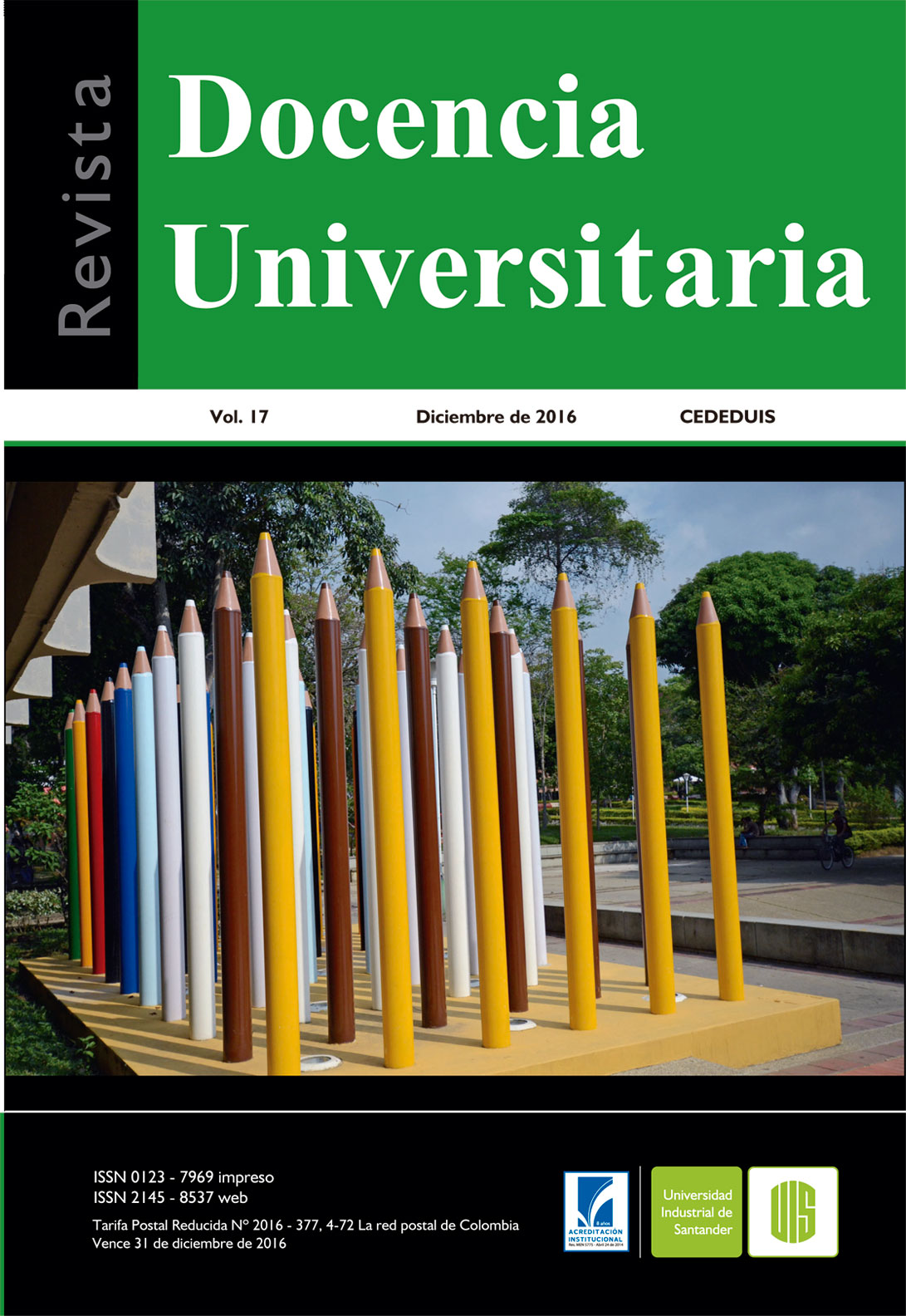Transformation and innovation of organizational culture in Higher Education Institutions. State of the art and conceptual bases
Published 2016-10-06
Keywords
- Innovation,
- Organizational Estructure,
- Organizational Culture,
- Institution of Higher Education,
- Organization
How to Cite
Abstract
This document examines the state of the art and conceptual bases of the transformation and innovation of organizational culture in higher education institutions. Thus, the research questions of this document are: a) What are the distinguishing features of innovative, creative and smart organizations? b) How does an institution of higher education can be innovative, creative and smart? In the end, it was concluded that to achieve an innovative organizational structure (real context), creative (high quality) and smart (shared experience, collective learning and systems thinking) organization in the higher education context, requires the participation of each one of the actors and focus groups in the academic community, who must properly interpret the strategic direction proposed by senior management.
Downloads
References
Aoki, M. (1988). Information, Incentives and Bargaining in the Japanese Economy. Cambridge: Cambridge University Press. BID-UTEC. (Agosto de 2015). Simposio “Universidades Tecnológicas: desarrollo, innovación y competitividad”. Recuperado el Noviembre de 2015, de http://www.iadb.org/es/proyectos/project-information-page,1303.html?id=UR-T1115.
Bonilla, E. (2011). Cultura organizacional e innovación tecnológica en las instituciones públicas de educación superior, zona fronteriza Colombo-Venezolana (estado Zulia-Departamento de la Guajira). Omnia, 17(3), 86-98.
Bourdieu, P. (1975). The specifity of the scientific field and the social conditions of the progress of reason. Social Science Information, 14-47.
COLCIENCIAS. (2009). Política Nacional de Ciencia Tecnología e Innovación: Documento Compes. Número 3582. Bogotá.
Delgado, E. (En prep.). Legalidad y legitimidad de las transformaciones organizacionales. Bucaramanga.
Lam, A. (2011). Organizaciones innovadores: Estructura, aprendizaje y adaptación. En F. BBVA, Innovación. Perspectiva del siglo XXI (págs. 163-177). España, London: Fundación BBVA.
León, R., Tejada, E., & Yataco, M. (2003). Las organizaciones inteligentes. Industrial DATA, 6(2), 82-87.
Maier, J. (2015). The ambidextrous organization: Exploring the New While Exploiting the Now. New York: Palgrave McMillan.
Martínez, N., & Dávila, A. (1998). Preguntas y respuestas sobre un espacio vacío de investigación: El estudio de la Cultura en Instituciones Educativas. Revista Mexicana de Investigación Educativa, 3(6), 203-209.
Martínez-Angarita, M. B. (2008). La adecuación de la cultura organizacional a la cultura académica en la escuela de logística del ejército nacional. Bogotá, Colombia.
McAnally-Salas, L., & Organista, J. (2007). La educación en línea y la capacidad de innovación y cambio de las instituciones de educación. Nueva época, 7(7), 82-94.
Mintzberg, H. (1979). The Structuring of Organization. New Jersey: Prentice Hall.
Misas-Arango, G. (2004). La educación superior en Colombia : análisis y estrategias para su desarrollo. Bogotá: Editorial Universidad Nacional de Colombia.
O’Reilly III, C. A., & Tushman, M. L. (2004). The Ambidextrous Organization. Harvard Business Review, 82(4), 74-81.
OCDE. (2014). Estudio de la OCDE de las políticas de innovación de Colombia.
Salomon, J. (1999). L’alliance du pouvoir et du savoir. Impact: Science et Societé. Vol XXII. No. 1-2., 133-142.
Santos-Calderón, J. M. (2007). Modernización educativa en la fuerza pública. Revista de las Fuerzas Armadas No. 74, 6-13.
Senge, P. (1990). La quinta disciplina. El arte y la práctica de la organización abierta al aprendizaje. España: Granica.
Shavelson, R., & Towne, L. (2002). Scientific Research in Education. Committee on Scientific Principles for Education and National Academies Press.
Solis-Sotomayor, L. X. (2014). Causas modales de la educación. Sophia: Colección de Filosofía de la Educación, 17(2), 61-76.
Stephen, R. (2004). Comportamiento Organizacional. Teoría y Práctica. México: Editorial Prentice Hall.
Taylor, F. W. (2004). Chapter I: Fundamentals of Scientific Management. En The Principles of Scientific Management. (pág. Disponible en: (http://www.searchengine.org.uk/pdfs/8/917.pdf).
Tera-Varela, O., & Lorenzo-Irlanda, J. (2011). Influencia de la cultura organizacional en el Desempeño y la Productividad de los Trabajadores Administrativos en Instituciones De Educación Superior. Revista Omnia, 17(1), 96-110.
Thoreau, H. (2008). Del deber de la desobediencia civil. Medellín: Editorial Pi. Obtenido de 7. Thoreau, H. D. La desobediencia civil. Edición digital disponible en: http://www.antorcha.net/biblioteca_virtual/politica/desobediencia/desobediencia.html.
Tong, C., Wah-Tak, W. I., & Wong, A. (2014). The impact of knowledge sharing on the relationship between organizational culture and job satisfaction: The perception of information communication and technology (ICT) practitioners in Hong Kong. International Journal of Human Resource Studies, 5(1), 19-47.
UNESCO. (2005). Vers les sociétés du savoir. París, France: Éditions UNESCO.

